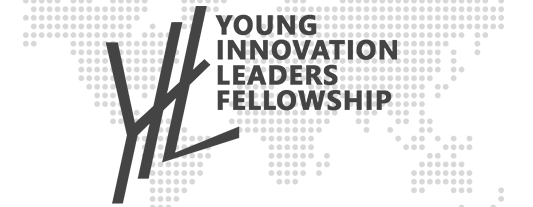STRUCTURE & CURRICULUM
Training
First Stage: Training & Skill Development (4 Months)
The first stage of the YIL Fellowship is designed to transform participants into innovative leaders. It includes four distinct phases:
Prework (4 Weeks)
Following selection and orientation, participants begin with a self-paced, mandatory training on innovation management and research methodology. This foundational phase equips them with key tools and knowledge necessary for success. Upon completion, participants must pass a quiz to progress to the next phase.
Inauguration Bootcamp (1 Week)
This intensive one-week bootcamp immerses participants in essential leadership principles and exposes them to real-world case studies. They also engage in one-on-one mentorship sessions with global industry experts, enhancing their strategic thinking and leadership capabilities.
Project Phase (10 Weeks)
During this phase, participants are divided into teams and assigned to one of two tracks:
- Innovation Leadership Track:
Participants acquire essential innovation management skills, from problem identification to the creation of scalable solutions. They learn how to address complex societal challenges and develop solutions that can evolve into entrepreneurial ventures. This track cultivates the skills needed to lead impactful innovation projects. - Innovation Ecosystem Research Track:
This track focuses on understanding the dynamics of innovation ecosystems. Participants examine the key elements driving or hindering startup growth and innovation, such as policy analysis, access to capital, talent acquisition, and infrastructure. Through case studies and research, they assess the role of innovation ecosystems in fostering sustainable development. -
Induction Bootcamp (1 Week)
The final phase of the first stage is an intensive week dedicated to scaling innovations and thriving as young leaders. Participants have the opportunity to pitch their projects, receive feedback, and present their solutions to a diverse audience of experts.
Second Stage: Membership & Lifelong Growth
The second stage of the fellowship offers an optional lifelong membership. This phase focuses on continued mentorship, professional development, and strategic leadership training.
curriculum for innovation leadership track
The Innovation Leadership track equips participants with the tools and knowledge to drive innovation through leadership, critical thinking, and practical problem-solving. The track combines theoretical learning with hands-on experience, leading to the creation of scalable solutions. Below is the detailed curriculum structure:
your future starts here
Discover a world of possibilities where bold ideas and cutting-edge skills shape your path to success. Step into a transformative journey designed to equip you for tomorrow’s challenges today.
CURRICULUM for innovation policy analysis
This course is designed to equip participants with the skills and knowledge to analyze and assess innovation policies, focusing on data collection, stakeholder engagement, policy analysis, and report writing. Participants will also learn how to benchmark and identify areas for improvement within a country’s innovation ecosystem. The curriculum spans six weeks, with a strong emphasis on practical application and stakeholder engagement.
“
Testimonials
“My YIL experience in one word was – Thrilling. The fellowship can be drilling but there was a lot of hands-on experiences that got me journaling throughout that period. I wrote down my experiences because I did not want to forget them. I learned a great deal about innovation tools such as design thinking, the Lean startup model, the BMC, and failing-forward to mention a few. YIL equally taught me that managing innovation requires planning, lots of collaboration, a change of perspective, and an inner attitude to live in the future.”
“The Young Innovation Leaders Fellowship has exposed me to an integral part of business innovation and critical thinking, giving me the opportunity to express my art in the form of ideating, modeling, imparting project-based knowledge, and prototyping. I am glad to have been a part of this year’s fellowship and I look forward to future partnerships with other fellows, and the organization. Glad to have met facilitators like Dr. Moody, Mr. Eyal, Dr. Obichi, and others who made the fellowship one essential part of my growth process this year.”
“YIL is a solution-oriented fellowship where the fellows are taken through the process of building a solution from the scratch. I’ve been privileged to be part of TEF for example, where you will need to have a business or at least a scalable idea before you enroll. With the YIL, all you just need to be part of the fellowship is a demonstration that you are smart and passionate enough to solve a pressing problem. YIL Fellowship will take you through a process to discover yourself and help you to realize your capacity to solve a problem even you don’t have the idea of the problem to solve.”
PLAN TO APPLY
YIL 2025
inquiries
important dates
Applications Open: 1st December 2024
Applications Close: 31st January 2025
Candidate Shortlisting: 28th February 2025
Training Commences: 17th March 2025
Training Concludes: 30th June 2025
